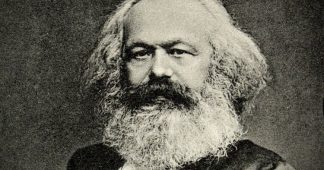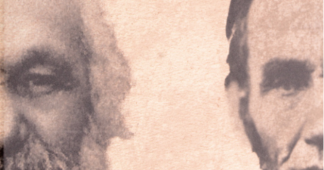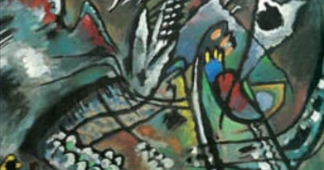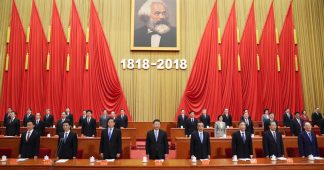The metabolic exchange between nature and society in a mode of production based upon value
By Elmar Altvater *
July 20, 2017
So many accusations have been levelled against Marx and, to an even greater extent, his friend and co-author Friedrich Engels in the 150 years since Capital was first published that the charges are almost too many to list. Unlike the political economists that came before him, Marx was supposedly unable to explain price formation. What is more, according to his critics, the predicted immiseration of the working class never occurred, and capitalism was not in a state of collapse, but has instead emerged victorious from the battle between competing social systems.
Marx and Engels are also accused of having paved the way for Stalin’s atrocities with their theoretical and political writings and of thus being the intellectual ringleaders of the crimes committed in the “age of extremes”. Those are the harsh allegations still being penned by journalists even to this day. But some of the yawning gaps, which Marx no doubt left in his work, seem instead to appear as prejudgments: Marx, and especially Engels, supposedly had no answer to the ecological issues that are our main concern today. They are alleged to have overlooked the fact that value is not only created by labor, but by nature too; in their theoretical edifice, nature is afforded less space compared to society, and the monotheistic notion of humanity’s domination of nature is not critically interrogated. But an examination of the blue volumes of Marx and Engels’s collective writings, especially the first volume of Capital in volume 23 (volume 35 of the English-language Marx-Engels Collected Works) shows that readers have left behind stains and finger prints, i.e. traces of their ecological existence. It is impossible to read Marx without any consideration for ecology. One reads Marx with one’s head and, consequently, with reason, but the experience is also tactile as one turns the pages with one’s fingertips.
An author without blind spots in his writing is like a hero without any flaws, the very model of a saint or, in other circles, a monumental bore. Of course, readers living 150 years after the author has passed on are, first of all, smarter – or at least, they should be, even if the author’s name is Karl Marx. But usually this intelligence only suffices to detect those predictions made by the author that have not come to pass, as well as to spot the odd gap in their argument, and announce such discoveries to the world. Some readers are only capable of challenging Marx’s theories armed with just the stale arguments of yesteryear.
Like many other authors, Marx undoubtedly left himself open to attack. These weak points should be seen as a challenge to the reader to improve them with their own thoughts and the resulting arguments. This demands a certain amount of effort, even if the gaps that Marx left behind are so rich with potential that they could give rise to many hundred thoughts. But nobody nurtures these creations in times in which the president of a fake country orders very real and deadly air strikes via Twitter with little contemplation, and when – less outrageously – the critique of ideas, including elaborated theories for which Marx provided a scientific rationale as well as examples, becomes part of a career opportunism that adheres to affirmative conformity, or when some foolish journalist from a well-respected newspaper sets out on a hopeless mission to uncover mistakes.
One does not have to get worked up over gaps. We refer to Marx the same way we refer to other great minds who have imparted indispensable knowledge to answer the unresolved questions in our work today. We cannot even name them all because some have become second nature and a part of everyday discourse, so much so that we are surprised when somebody points out the authorship of some familiar thought or saying; for example, that economists are people who know the price of everything but the value of nothing. These words were uttered by the poet Oscar Wilde, who obviously knew better than the elite club of economics Nobel prize winners who regularly meet in Lindau for the purpose of narcissistic self-reflection. Marx said that the coins and cash of the “monetary system” was “essentially Catholic”, whilst “the credit system [was] essentially Protestant”. As proof, he adds that this was already illustrated by the fact that “the Scotch hate gold”. (Capital Vol. III, p. 727.) Today we know that it was primarily Protestants who brought the euro monetary system into being and Protestants who are working to completely abolish cash in Europe. A church struggle waged by monetary means. And Marx had anticipated this since he was aware of the unbreakable bond that existed between a mode of production based upon value and its cultural and ideological constructions.
With every new reading of Capital, one discovers something new. But this is only the case if one approaches the text with curiosity and from a modern-day perspective, and does not read it as commandments carved in tablets of stone. Even 200 years after Marx was born, the pointless endeavor of not wanting to see the world in the same light, but rather to plunge into the twilight of one’s own dimness, persists. There are Wahhabi-style Marxists who demonize a critical re-reading of Capital (such as that of Mathias Greffrath from 2017), but they are now fewer in number.
It is a core intellectual task of the Enlightenment – one could emphatically add, for the purpose of improving humanity – to shine a light on the entire terrain of class struggle, the diversity of social conflicts and their actors, their origins, their dynamics and forms of development, and their intended consequences and unintended side effects. This diversity is now different from how it was during the time of the Russian Revolution in 1917, or a hundred years earlier when Marx was born in Trier in 1818, or in 1867, when Marx hand-delivered the manuscript of Capital to his Hamburg publisher Otto Meissner.
It was supposed to be not just a manuscript for a book, but “the most terrible MISSILE that has yet been hurled at the heads of the bourgeoisie”, as Marx wrote to Johann Philipp Becker in a letter on April 17, 1867, shortly after he had been to Hamburg (Marx Engels Collected Works, Volume 42, p. 358). A piece of writing that was theoretical, very complex, and not easily accessible to all became a projectile in the class struggle. A practical test sought to establish its suitability for theoretical work, for creating a strategy, and also developing tactics in the political exercise of generating social and political movement(s). The entire complex of bourgeois society, its economy and ecology, is targeted. Marx stands alone among economists as the only figure who, in categories he examines, considers, and analytically decodes, the “general dialectical context” of matter and value, material and form, use value and exchange value, concrete and abstract labor, nature and society, social structure and individual as well as collective action – thus of theory and practice.
The general context of the “mode of production based upon value” determines the analytical approach, the form and reach of critique. It is holistic, more comprehensive than analytical approaches from other social sciences and theoretical “schools” of economics, which thus exhibit more gaps than theoretical approaches to Marx and Engels’s work. For that reason, Marx is the only economist in whose categorical system the ecological problems of capitalist society can be appropriately analyzed and debated. Is that an arrogant and therefore brazen as well as dumb assumption? Possibly. But there are good arguments that speak for this line of reasoning. Before the beginning of the fossil-fuel driven industrial era, there were also economic theories, hence the history of dogma can be traced back all the way to biblical times. But it is only since man began to use fossil fuels systematically that workers have been able to make use of instruments to alter nature which, on the one hand, can enable the productivity of labor and the “wealth of nations” to be increased to previously unreachable heights, but, on the other, also lead to the destruction of nature. The metabolism of capitalist reproduction comprises both consumption and excretion, i.e. the creation of natural material. However, this mixture cannot always be tolerated by either man or nature. The environmental crisis begins and the effects this shift has upon people’s living conditions are described by Friedrich Engels in his 1844 work Condition of the Working Class in England.
The possibility for growth provides the impetus for both scientific and empirical efforts to systematically research the origins of this new wealth. Does it arise from trade carried out on the market or from the labor performed in the process of production? Those are questions that any kindhearted soul may raise but can give no satisfying answers to. Where good will falls short, science has to take over. A new discipline takes shape, initially, of course, within the traditional science canon. It is therefore no surprise that the pre-revolutionary encyclopedists of 18th-century France believed the answers to economic questions lay in moral doctrine. Here modern neoliberals can only shake their heads. Eventually, political economy came into being. Let us therefore begin with a very brief overview of the most influential schools of economic thought that the world has seen since the 18th century.
1) Classical economists understood that economic value is created by labor and that the key factor is surplus, i.e. surplus value. They also identified the difference between material and value, but failed to recognize their specific social form. To them, capitalism and the market economy were the ultima ratio of the economic as well as the natural order. The difference between the surplus in pre-capitalist societies and surplus value in capitalist society was no more a topic than the possibility of a post-capitalist society or the burning issue that the environment has become today. However, “classical economists” had acknowledged that economics was political and also had something to do with “moral sentiments” and ethics, whilst it also needed to be analytically challenging and, at the same time, be based on norms within the order of polity. Therefore, political economy was – at least at the beginning of the bourgeois era – a self-conscious program to design what Leibniz considered the best of all possible worlds. In the interests of the bourgeoisie (the rising capitalist class), classical political economy was a partisan science. It was still untouched by the conflicts over value judgments unleashed in the 20th century.
2) As early as the beginning of the 18th century, Bernard Mandeville (1703) in his “The Fable of the Bees” and Voltaire in his novel Candide, which took aim at Leibniz, tried to sully the presumptuous and indeed crazy idea of a best possible society. Derision and mockery were admittedly not the “critique of political economy” that Marx had worked on since the 1840s.The political economy that had first arose as a science together with the bourgeoisie did not work its way up to a critique of political economy, but rather followed the easier principle of disembedding all that was economic from social and political contexts as well as from conflicts, pressures of legitimization, traditions, and customs. It fits within the landscape of what is now the prevailing capitalist market economy. Economics mutated into the science of a disembedded market economy, which became the subject of Karl Polanyi’s (1978) research. Economics no longer considered itself to be political economy as the classical economists had designed it to be; it regarded morally justified norms defensively and with skepticism, and was far removed from a materialist and dialectical critique of political economy. The word “economy”, which was reminiscent of material and, therefore, of social and natural substance, was now also deleted and replaced by “economics”. Throughout this history of disembedding, over the course of which every notion of society, politics, culture and nature faded from economics, critique of economic discourses also disappeared, and was consequently dropped from university curricula – disembedded, as it were, from the social context that went by the name “economics”. The dreary state of today’s economics faculties thus has an equally dismal history.
The neoclassical economists of the 19th century, and especially their neoliberal followers of the 20th century, were therefore only interested in the monetary side of economic processes, and devoted no time to the origin, form, and content of money, which they alone are able to employ to discuss economic issues. That is why, when they rant on about natural capital, they are not able to recognize ecological problems and discuss them sensibly. Notifications from the central banks they have established concerning the quantity of money (which, according to a much-quoted bon mot by the neoliberal high priest Milton Friedman, has been thrown from a helicopter, thus earning the name helicopter money M1, M2, M3, etc.) are enough for them. In their eyes, value created by labor as well as the material economy of matter and energy are of no importance. They are also not interested in the process of production prior to the functioning of the market and the process of disposing of waste, sewage, and exhaust fumes within the natural domain of Planet Earth after products have been produced and consumed. The only thing that matters is that everything has its price, which economists can then calculate. Nature is only interesting as natural capital; human beings as human capital.
That is the nadir of economic intelligence that the Nobel Committee has celebrated with countless prizes. The economist himself concedes that this is inhuman, for the most part, without understanding what he is saying: when he (only in rare cases would “she” apply) tacks very artificial assumptions onto mathematical structure models or assumes the rationality of homo oeconomicus. This is always instrumental and must therefore always exclude from calculation whatever does not appear on the radar of the “economic man” or the “investor”. He is thus absolved from all responsibility for environmental damage as a consequence of the pursuit of profit that drives investment decisions. “Social costs and environmental disruption… may be considered the principal contradiction within the system of business enterprise,” writes K. William Kapp (1971: XIV), one of the few economists to have dealt with the environmental consequences of private capital accumulation.
In neoclassical economics, with its unleashed private capital, drive to accumulation, and rollback of the commons and state regulation, externalization is a structural principle, unavoidable in the modern capitalist economy. Attempts to internalize “social costs” could thus only deliver success if the rationality of capitalist society were to be called into question, i.e. if this society were to be changed. Externalization is therefore an expression (one that economists fail to grasp) of the market economy being disembedded from society and nature, something that Marx criticized as fetishism. This inhibits the understanding that the occupation of the planet for the purpose of capitalist (usually commercial) valorization called “externalization” is nothing less than the digestion of nature in the insatiable, greedy metabolic tract of the economy and society.
3) It was in the Keynesian economics that followed the great global economic crisis of the 1930s that space and time, and therefore categories of nature, were rediscovered as meaningful elements for economists. But understanding was extremely limited, since the main concern was to recognize economic instabilities that arose as the result of the uncertainty of investment decisions that would take effect in the future. A decision is made in the present on the basis of given certainties that arise from periods that are already in the past. Expectations, however, are based upon future revenues. Investments are thus always and necessarily fraught with risk and may fail, since the future is unknown and things can turn out very differently to what the decision-making economic entity had planned. This entity compares external and internal rates of interest, market interest that can be regulated within certain limits by the central bank, and the rate of profit, which is dependent upon productivity and labor costs. Decisions, however, are reliant upon private, profit-focused calculations.
4) Unlike classical economics, neoclassical economics or Keynesianism and its variants, in thermodynamic economics matter and energy and their transformations, i.e. ecological conditions of production, consumption and circulation, are central categories. Thermodynamic economics is the answer provided by economists who are dissatisfied with neoliberal and neoclassical schools of thought that forget nature. It was also directed at Marx’s theory, on the basis, however, of a terribly truncated interpretation of Marx’s analysis of the mode of production based upon value (and indeed not upon matter).
Today, thermodynamic or bioeconomics is usually mentioned in connection with the Romanian mathematician and economist Nicholas Goergescu-Roegen and his principal work from the year 1971. Material and energetic transformations are of fundamental importance to economic analysis and must not be excluded from it, since all economic transactions occur within space and time and an economic science without consideration of physical time and physical space would therefore be absurd as it excludes the possibility of understanding the entropic character of all economic transformations of matter and energy.
Over the course of time, entropy increases, i.e. once used, energy cannot be reused (the case is similar for matter). The quality of labor performance declines. This is pointed out by thermodynamic economics, which, in contrast to neoclassical economics, is able to adequately discuss the externalization of social costs generated in the private economy as mentioned above. However, the analysis of social forms of economic activity is neglected in thermodynamic economics. They are not even considered. The significance of the capitalist drivers behind today’s ecologically disastrous transformations of matter and energy and how they influence ecology and environmental policy are not being sufficiently recognized. Once again, the central role of the category illustrates the dual nature of labor and its product, the commodity, as the “pivot” of political economy (for a more in-depth discussion, see Althusser 2017 a and b).
5) Since its beginning, political economy has been one-sided. Either money is all that matters, or matter and energy are the object of focus. The specific social form of using matter and energy in the capitalist mode of production, and the questions of why money is transformed into capital and why the mode of production then revolutionizes all ways of life do not show up on the radar of economic theorists on either side. This one sidedness is by no means abolished when it is diversified by declaring it “plural economics” and emphasized using multiple names, such as plural economics, ecological, evolutionary economics, commons economics, community economics and post-growth economics (Schneidewind et al. 216).
Hence the science that has, since Marx, been referred to as “the critique of political economy” and which we, along with Friedrich Engels, can refer to as the “science of the dialectical connected whole” or, as we would describe it today, a holistic approach in line with chaos theory, does not arise. Pluralism is good, but not enough to grasp the contradictions and crises of the social dynamic of capitalist economies and the “web of life” (Jason Moore 2015) that they regulate on Planet Earth. Until now, this web of life has remained unrecognized in its total complexity, and might be impossible to grasp scientifically, and also contains many actors that all play a role in social conflicts and in the class struggles of the ecological age. We must grasp them as soon as possible in order to become or remain capable of action. The environmental space at our disposal is not only limited, as has been acknowledged since the 1990s following the insights provided by studies on the limits of growth. Those of us on the “limited planetary sphere” (to use a term quoted by Immanuel Kant) are approaching the “planetary boundaries” marked by an international group of scientists led by Johan Rockström in 2009. We have already crossed some of them. We are living hand-to-mouth. The hand has less and less to offer, but the mouth is still being used as a raging megaphone, primarily by the “great Americans”.
The evidence provided by scientists, which proves not only the finiteness of resources but also the decline of Planet Earth as it is being turned into one giant landfill or a dumping ground for hazardous waste, is both obvious and terrifying, all the more so when the capitalist drivers analyzed by Marx, and thus specific to this social formation, are taken into consideration: value production, which treats labor, i.e. human beings, as well as the natural world with absolutely no consideration, and which must be imposed every time against capitalist interests of protecting nature and mankind. “Accumulate, accumulate! That is Moses and the prophets!” (Karl Marx, Capital Volume 1, p. 742) is how Marx cites the iron law of capitalism. Even the self-evident rules of cleanliness must be wrested from capital if they even slightly restrict the creation of surplus value through labor. The antagonism that exists between matter and value, wage labor and capital, nature and society, accumulation and crisis must, therefore, first of all, be understood as an economic contradiction and social conflict within the capitalist mode of production before one can reasonably speak of the common good, post-growth, etc. economics or plural economics, which refuse to acknowledge any systemic constraints.
In neoliberal mainstream economics, the situation is hopeless. But even the pluralist economics of sustainability believes in reconciling the interests of capital with the interest of natural preservation and the interests of workers. Of course, social conflicts are not always conducted on a knife edge; negotiations occur, compromises are possible and even endure for some time. The Sustainable Development Goals (SDG) offer a glimmer of hope and are a signal for the dawning of a new, sustainable post-growth future. We can see some similarities to the events that took place during the periods of reformism, when the labor movement believed in reconciling conflicting class interests. In ecological conflicts too, the necessary groundwork is being laid so that parties can one day march hand in hand toward compromise. But how the desired social-ecological sustainability can be achieved, and what form it should take if capital’s drive to accumulate is not brought to a standstill, that is to say, if Moses and the prophets are not deprived of power, is a topic that has yet to be addressed by plural economics.
Marx and Engels wrote in The Communist Manifesto that until now history has been a story of class struggle. And this will continue to be the case. However, in the future struggles will not only take place concerning wages, performance and the quantity and quality of employment within the existing capitalist society, and/or if this societal framework should be overhauled, but also concerning living and working conditions in a society at the limits of planetary capacity. The organization of an imperialism of plunder, as described by David Harvey (2005), or the externalization of burdens and the placing of excessive strain on nature as a result of rational calculations made by “investors”, as described by Lessenich (2016), amount to nothing but desperately patching up a protective fence that has already been torn down. There is no other option but to create an economically efficient, socially balanced society organized democratically and ecologically according to principles of sustainability. Many will note this message with approval. But it does not come from an awareness of the advantages of a post-growth economy, because it cannot exist without transcending capitalism. As has always been the case in history, it is the result of class struggles for a future worth living in, both in the 21st century and beyond: pragmatic political efforts toward a humane and ecological shaping of the total dialectical context.
Literature:
Altvater, Elmar (2017a): Kapital und Anthropozän, in: Greffrath, Mathias (2017): 53-72
Altvater, Elmar (2017b): Nach 150 Jahren „Das Kapital“ – Kritik der politischen Ökonomie am Plastikstrand, in: Z – Nr. 111, September 2017
Engels, Friedrich: Dialektik der Natur, in: Karl Marx/ Friedrich Engels – Werke. (Karl) Dietz Verlag, Berlin. Band 20. Berlin/DDR. 1962: 305-570.
Engels, Friedrich: Die Lage der arbeitenden Klasse in England, in: Marx-Engels-Werke (MEW) Band 2. Dietz, Berlin 1972: 225–506.
Georgescu-Roegen, N. (1971): The Entropy Law and the Economic Process, Cambridge, Mass. (Harvard University Press)
Greffrath, Mathias, Hrsg. (2017): Re: Das Kapital. Politische Ökonomie im 21. Jahrhundert, (Kunstmann) München
Kapp, K. William (1971): The Social Costs of Private Enterprise, New York
Mandeville, Bernard de (1703/1957). Die Bienenfabel, (Akademie-Verlag) Berlin
Marx, Karl Capital, Volumes 1 and 3, Penguin Classics. New York and London.
Moore, Jason (2015): Capitalism in the Web of Life, (Verso) London
Polanyi, Karl (1978): The Great Transformation (Suhrkamp) Frankfurt am Main
Rockström, Johan et al (2009): Planetary Boundaries: Exploring the Safe Operating Space for Humanity, in: Ecology and Society 14 (2) (http://www.ecologyandsociety.org/vol14/iss2/art32/)
Voltaire (1759/1990). Candide oder der Optimismus, (Büchergilde Gutenberg) Frankfurt am Main/ Wien
* Elmar Altvater: until 2004 professor of (international) political economics at the Department of Political and Social Sciences at the Freie Universität Berlin and now retired. Fields of interest: Research and publications on the politics and economy of globalization, including “Grenzen der Globalisierung” (1996, 7th ed. 2007, “Limitations of Globalization”) and “Globalisierung der Unsicherheit” (2002, “Globalization of Uncertainty”), both together with Birgit Mahnkopf. In addition, publications on the Marxian theory and on the ecological system of the world and global environmental policy.
Published at https://marx200.org/en/debate/gap-marxs-work-or-ignorance-reader











